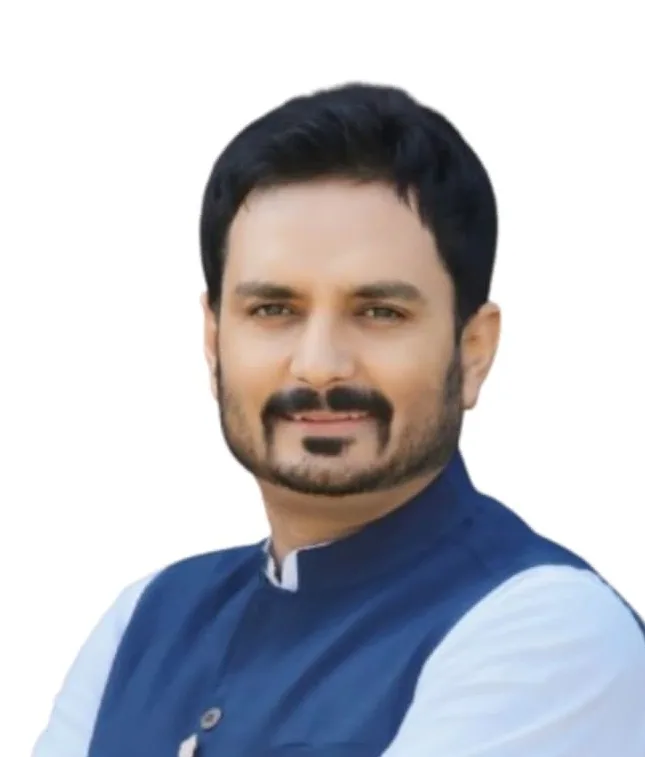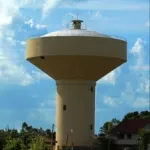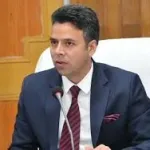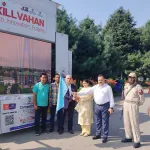The recent unrest in Jammu and Kashmir’s Doda district, sparked by the arrest of Aam Aadmi Party (AAP) MLA Mehraj Malik under the Public Safety Act (PSA) on September 9, 2025, has reignited accusations of communal politicking, with the Jammu and Kashmir National Conference (JKNC) and the Abdullah family at the center of criticism.
The detention, followed by protests, clashes, and a tragic infant’s death, allegedly due to protest-related road blockades, mirrors historical patterns of communalized unrest in Kashmir, notably the 1931 riots. The JKNC’s support for Malik, despite his alleged inflammatory rhetoric, underscores a decades-old divisive agenda that critics argue the Abdullahs have perpetuated for political gain, with other regional parties like the People’s Democratic Party (PDP) amplifying tensions.
Malik’s arrest, backed by a dossier citing 18 FIRs for incitement, abusive language, and disruption of flood relief efforts, led to protests in Doda and Bhalessa, with supporters framing it as an attack on democracy. Opponents, however, point to Malik’s history of glorifying terrorists like Burhan Wani and Masood Azhar, and derogatory remarks labeling Hindus as “boozers” and Muslims as “secret boozers,” as evidence of a communal agenda threatening the erstwhile Doda harmony.
The death of two-month-old Umaisa, reportedly due to call given by Mehraj Malik of chakka jam due to which her family was denied a passage to a hospital amid protest blockades, has become a tragic symbol of the unrest’s human cost. Critics question, “Can Mehraj Malik, Omar Abdullah, or Mehbooba Mufti bring back that innocent life?”
Farooq Abdullah, JKNC patriarch, escalated tensions on September 10, 2025, accusing Lieutenant Governor Manoj Sinha of mismanaging law and order, stating, “The L-G is responsible for what is happening in Doda.” His remarks, invoking the Jammu and Kashmir Reorganisation Act of 2019, deflect from JKNC’s support for Malik, who allegedly humiliated a female NC minister by calling her “illiterate” and using abusive language. This raises serious questions about the party’s ethics, particularly its respect for women, as NC president, backs Malik despite such conduct, prioritizing power over principles.
The JKNC’s history fuels these accusations. Founded as the All Jammu and Kashmir Muslim Conference in 1932, it rebranded in 1939 to project secularism but has long been criticized for leveraging communal vote banks under a secular veneer. The 1931 riots, initially a protest against Dogra rule, turned into targeted violence against Kashmiri Pandits, dubbed “Batta Loot Day,” with mobs looting Hindu homes and temples.
Critics see parallels in Doda, where administrative grievances over Malik’s arrest have been communalized, with slogans framing the PSA as anti-Muslim persecution. Posts on X amplify this divide: @dogra_ns wrote, “This MLA targeted Hindus, saying they consume alcohol on festivals… He’s dangerous for Doda’s communal harmony.” Conversely, @KoshurAwaaz claimed, “The PSA is used to silence a Muslim representative, while BJP leaders face no such action.” Such polarized rhetoric echoes 1931’s divisive playbook.
The Abdullahs’ legacy is further tainted by the 1987 election rigging against the Muslim United Front (MUF), a coalition poised for gains. The NC-Congress alliance’s manipulation—through ballot stuffing and candidate arrests—disenfranchised youth, many of whom joined Pakistan-based terrorist groups, sparking terrorism that left thousands of Muslim graves in Kashmir.
The Abdullahs faced blame for complicity, with the rigging labeled the “beginning of terrorism in Kashmir.” Today, NC’s backing of Malik, despite his communal rhetoric, is seen as a repeat tactic: stoking fears by portraying opponents as threats, as they did by labeling MUF a “purely Muslim party” bent on aligning Kashmir with Pakistan.
Other regional parties, notably the PDP under Mehbooba Mufti, have fueled the fire. Mufti condemned Malik’s arrest in a press conference, aligning with NC’s narrative of administrative overreach. Yet, this unity among regional parties appears opportunistic, amplifying communal tensions to challenge central authority. NC’s claim that Malik’s PSA booking shows a Hindu-Muslim divide risks deepening distrust, much like their 1987 portrayal of MUF. This pattern—exploiting religious sentiments for votes—has left Kashmir mourning for decades, from the Pandit exodus to the insurgency’s toll.
The Doda unrest exposes the Abdullahs’ and JKNC’s role in perpetuating division. Supporting a figure like Malik, who allegedly insulted communities and a female colleague, reveals a party prioritizing power over unity. The infant’s death underscores the stakes: communal agendas harm all, including Muslims, as seen in 1987’s aftermath.
The plea resounds: “Stop playing politics on graves.” Doda’s resilient Hindu-Muslim chord must resist these forces. Secularism, Bharat’s foundation, demands accountability, even for elected leaders. As curfews persist, the region prays for peace: Om Shanti (Amen). May Umaisa’s soul rest, and may wisdom prevail over division.
(The Author is Spokesperson of BJP)






